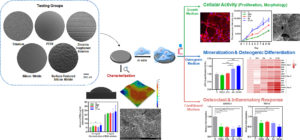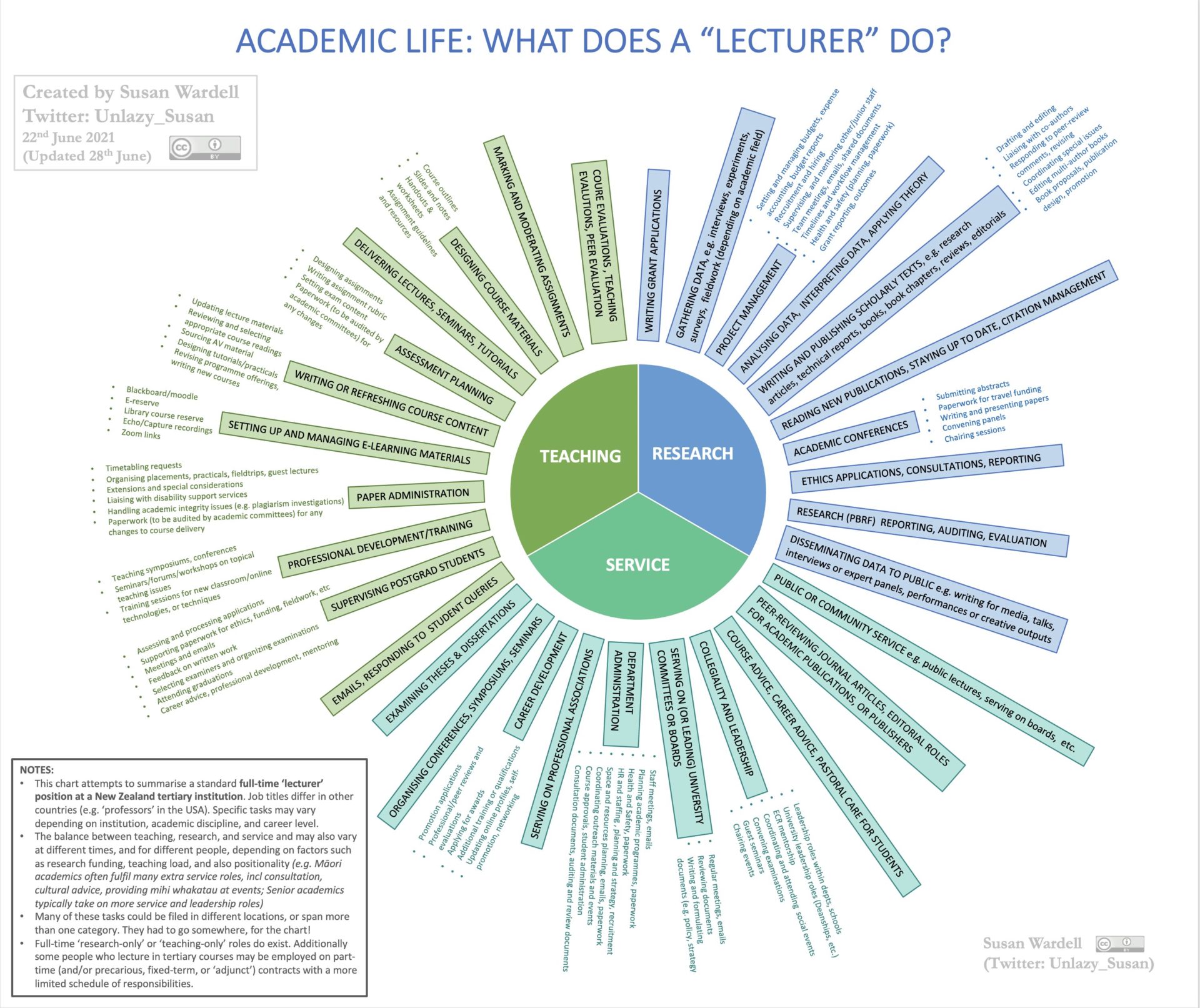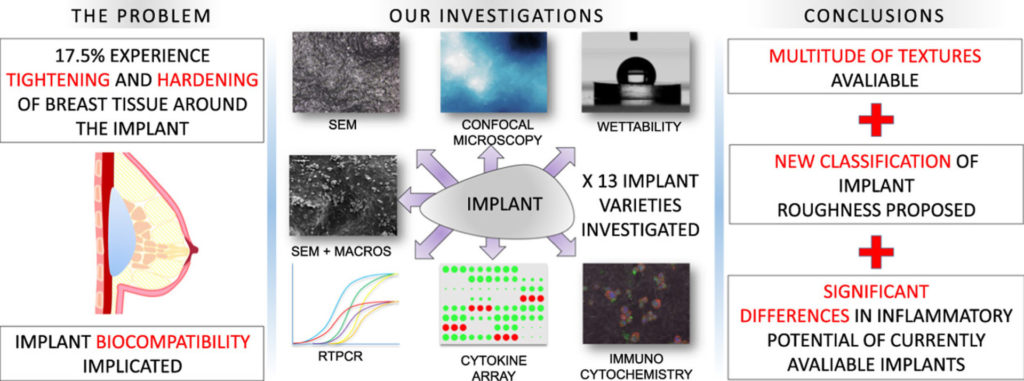BioTrib welcomes André Plath who has started as an Early Stage Researcher at the ETH Zurich within Prof Stephen Ferguson’s Group. Like Pedro, André is from Brazil. André will surely be pleased with the performance of his home country in the Olympics where the Brazilian Footbal Team won an exciting game over another soccer ‘Super-Power’ Spain, 2-1. Whilst at ETH Zurich, André will research Boundary Lubrication of Fibrous Scaffolds as he brings new technologies to the fore for improving joint replacement and/or augmentation.
BioTrib Conversations: LifeLongJoints lessons learned in medical device testing
Professor Anthony Redmond discusses his experience working in LifeLongJoints and the developments made towards preclinical testing for medical devices following recent lessons learned about insufficient testing leading to severe in vivo failure of hip replacements.
BioTrib Conversations: Challenges and Futures of European Training Networks
BioTrib Co-ordinator Professor Richard Hall interviews Frank Marx the Deputy Head of Unit at the European Research Executive Agency on the challenges of organising and co-ordinating large collaborative European Training Networks for advanced research training.
Excellent paper from the Nu-Spine ETN – Congratulations to Seung and co-authors!
Seung Hun Lee and colleagues at ETH Zurich have recently published a peer reviewed paper “Comprehensive in vitro Comparison of Cellular and Osteogenic Response to Alternative Biomaterials for Spinal Implants” in Materials Science and Engineering: C. The article explored the effects of silicon nitride (SN) in terms of cell proliferation, mineralization and osteogenesis, all of which were deemed positive with respect to the effects of other materials including Ti and PEEK. A similar result to that of SiN was found for zirconia toughened alumina. Further, the paper demonstrates the potential of surface texturing in enhancing the osteogenic capacity of this material. The graphical abstract for the paper can be found below.

Seunghun S. Lee, Stephanie Huber, Stephen J. Ferguson,
Comprehensive in vitro comparison of cellular and osteogenic response to alternative biomaterials for spinal implants,
Materials Science and Engineering: C, Volume 127, 2021, 112251, ISSN 0928-4931, https://doi.org/10.1016/j.msec.2021.112251.
BioTrib’s first ESR – Pedro Lima Dos Santos
A big welcome to Pedro from Campina Grande in Brasil.
Some of you will have met Pedro already through the on-line courses etc we have held previously. Just to let you know that Pedro has now been in the UK for 2 weeks of which 10 days were spent quarantining. Previously he had been working as a researcher in Lisbon, Portugal. Like England in the UEFA final, Brasil lost 1-0 in the Copas America final vs Argentina over the weekend and on home territory so he is probably in need of some sympathy!
Pedro will be researching surface modifications in additive manufacturing processes to enhance artificial joint performance.
93 percent club
Earlier in the year I reported on a new University Stakeholder Group that was gaining traction within the sector. Unusually this one was centred on those which form the greatest proportion of school leavers, those from state schools. There is further news on this on the BBC website. Sophie Pender expertly brings the situation to the fore saying:

“Truthfully, when many state-educated people reach the pinnacle of their careers, they’ve often dispensed with their state-school identity,”
“Our socioeconomic background is not obvious on the surface.
“It’s a characteristic that we are able to mask if we need to – and that needs to stop.”
Quotes taken from the BBC website – https://www.bbc.co.uk/news/education-57580910, accessed 12th July 2021
I just wonder how may of us now say ‘dinner’ rather than ‘tea’!?
Further information on this not-for-profit social enterprise can be found by following the link – 93percent.
Paige Kesemeyer – homelessness to academic success!
A truly brilliant piece from Paige Kesemeyer about her journey from disadvantage and initial lack of opportunity to completing her BA degree in Social Policy and an MA in Society, Culture and Media. Education for all and the opportunities that it provides are a necessary part of imaging a just and beneficial society which allows all to flourish as they see fit. It also provides us (society) with the widest possible pool of talent and encourages a broader range of innovation and ideas to circulate within different sectors. It also recognises the importance of taking to account all stakeholder views to ensure that minimal disadvantage is impacted on particular groups.
What does a Lecturer/Professor actually do?
It is pretty much a standard joke about what academics do with their time including the perception we have lengthy holidays when the UG students are on vacation. This view is held in not only amongst the public at large but by our own students, their parents and, rather alarmingly, by policy makers and even former Ministers of Education (I thought there would have been solidarity amongst professions that have a long summer ‘recess’).
Dr Susan Wardell from Social Anthropology at the University of Otaga, NZ, has produced an infographic of the life of an academic and the various tasks we have perform to fulfil our obligations to our stakeholders (see below). There is further info on Dr Wardell’s twitter feed. What is left off the infographic is the number of hours a typical academic works – which in the UK is in excess of that defined by the working time directive – 48 hours (when the UK was a member of the EU it was the only country to have an exemption from this legislation). Prof. Katherine Sang et al (2015) provides a critique of this phenomena. This is not an isolated discussion (just type ‘How many hours a week do academics work’ into a search engine) especially around the reducing focus on research. 
An academic’s role within the University environment. Creative Commons License – Copyright, Susan Wardall – Source Twitter: Unlazy Susan.
Final day of Pride month – the EU keeps the good fight up! 🏳️🌈
Pride month has offered a vibrant opportunity to celebrate diversity and the identities of our friends, colleagues and communities.
However, recent news of the Hungarian bill which set out to ban teaching of LGBTQ+ topics in schools is a callous and unfortunate reminder that there are still many marginalised LGBTQ+ communities.
BioTrib and its members are proud to be part of a European community that was quick to condemn this shameful bill. The President of the EU Commission, Ursula von der Leyen, released an uncompromising statement reassuring us all that the Hungarian bill is at loggerheads with the fundamental values of the EU and will not stand for discrimination against people on the basis of their sexual orientation.
I believe in a Europe which embraces diversity.
Ursula von der Leyen, President of the European Commission
I will use all the powers of the Commission to ensure that the rights of all EU citizens are guaranteed. Whoever they are and where ever they live within the European Union.
Read President von der Leyen’s full statement here or alternatively watch it here.
Surface Modifications of Breast Implants affect Immune Response.
Further evidence of the important effect of engineered surfaces on immune response, this time in breast implants. Such research demonstrates the importance of modifying the surface texture in a manner that reduces the foreign body response. These and other examples pave the way for the development of new technologies for enhancing a favourable response to the implant and reduce complications including, potential, arising from infection and surface contraction.
The authors of the original paper have already provided a classification system for functional biocompatibility with regard to surface roughness (see figure below).

Figure reproduced from: Barr et al, Journal of the Mechanical Behavior of Biomedical Materials, Volume 75, November 2017, Pages 75-81. Attribution 4.0 International (CC BY 4.0)
BioTrib Conversations: Modelling Bio-Lubricated Contacts
Prof Richard Hall (BioTrib Co-ordinator University of Leeds) and Dr Rob Hewson (BioTrib Lead Scientist, Imperial College London) discuss applications of advanced computational methods in biotribology, modelling synovial joints and the behavior of synovial fluid, and the roles of experimental engineers working with experts in fluid dynamics modelling.
I am just wondering whether UKRI will have a float at Pride?
UKRI provides a timely reminder that we are all unfilled if we are to allow our colleagues, friends and family members to be excluded for something as simple as wanting to live a happy and unhindered life, free from persecution.
Learn more about the history of pride and the progressive steps UKRI is taking to promote equality and diversity this Pride month!
10 ingredients for a successful supervisor/PhD student relationship – A thoughtful commentary from Elsevier Connect
The PhD candidate-Supervisor Relationship is probably the cornerstone of academic research, at least in Western Europe. The relationship, which can last anything from 3 to 5 or more years depending on the type and location of the PhD degree, provides a key transition for the student from being a learned individual to one who enhances these attributes and becomes more or less independent in their pursuit of excellence.
Some of the more successful relationships last a lifetime particularly for those candidates that continue a career in academia or a similar domain. Prof Torralba declares 10 key constituents for developing this relationship successfully. How do these attributes/features resonate with your experiences as a supervisor or student?
Leeds: The Summer Careers Festival 2021!
This Summer, we’re excited to share with you a series of virtual events to help you discover opportunities in Yorkshire, the UK and globally. Join us from the 7 – 10 June for the Summer Careers Festival, where you can book 1-to-1 meetings and group sessions with a huge range of employers who are looking to hire now!
We have over 160+ employers with live vacancies waiting to talk to you! If you’re looking for a summer internship, placement or a graduate level job – then the Summer Careers Festival is for you.
See what events we will run during the Summer Careers Festival below and click directly on each event to book your exclusive place.
Summer Careers Festival fairs and events:
- Monday 7 June – Yorkshire Careers Day
- Tuesday 8 June – UK Careers Day
- Wednesday 9 June – Global Careers Day
- Thursday 10 June – 3 panel events focusing on Inclusion, Diversity and Equality
To attend the Careers Day fairs you will have to download the CareerFair+ app and get your profile ready! Read the top tips here to stand out from the crowd and make sure to attend the pre-events webinars.
Here are some tips on how to join us and make the most of the Careers Days:
- Download the CF+ app (Google Play & App Store)
- Create an account – watch this video to see how!
- Allow notifications & add the fair to your calendar
- Listen to How to prepare for the Summer Careers Festival | Top tips from Marc and Kiera – webinar recording
- Browse attending employers (https://cfplus.page.link/ZMm1)
- Research the companies and use filters to decide which employers you want to talk to
- Book 1-2-1 appointments and group sessions. Employers are adding their availability on daily basis – if you cannot book an appointment for a particular employer – make sure to log in to CF+ at a later date to check their availability again.
Data in the EU – Interesting information on demographics and Migration within the World’s Largest Trading Bloc
We are often told that data and the knowledge derived from it drives our economy and our is important for social justice – an evidence based approach but so often we are not provided with the data we need let alone the tools for the average person to access it. A step in the right direction is the data service of the EU – interesting reading was the demography and migration bit of the service… have a read! But not sure if you can get hold of the source data.

